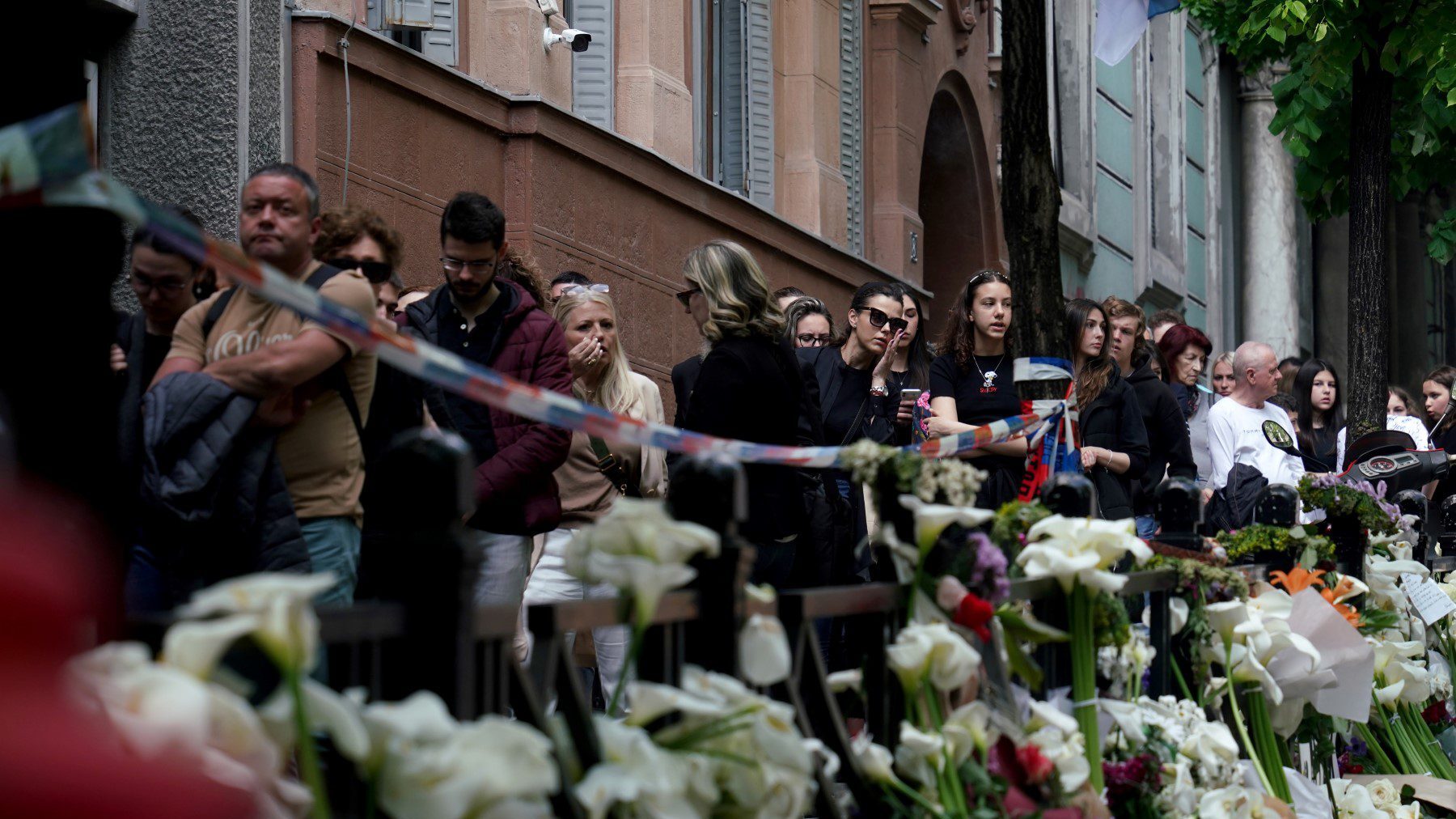
People line up to sign the book of condolences outside the Vladislav Ribnikar elementary school in the capital Belgrade, on May 5, 2023, two days after a 13-year-old suspect shot dead eight fellow students and a security guard after allegedly drawing up a kill list.
Photo: Oliver Bunic / AFP
Still reeling and in shock from the two mass school shootings last week that left 17 people dead and 21 injured in a matter of 48 hours, Serbs in the affected communities gathered over the weekend to lay the victims, many of whom were children, to rest.
The first attack, which took place on Wednesday, May 3rd at a primary school in Belgrade and saw eight students and a security guard murdered, was followed by another shooting the following evening which saw eight people shot dead in two villages some 60 kilometers south of the capital city.
Last week’s mass shootings are the first to take place in the country since 2013 when a Serbian war veteran gunned down 13 people.
Wednesday’s shooter, a 13-year-old boy who is believed to have used his father’s licensed guns, opened fire on the school’s students, killing nine—seven girls, a boy, and a security guard—and injuring another six pupils—four boys and two girls—and a teacher.
The teenage perpetrator, being too young to be criminally charged, has been placed in a psychiatric hospital. The motive for the attack is not clear at the moment. Meanwhile, the shooter’s father was arrested by Serbian authorities for allegedly instructing his son how to use guns and failing to secure the weapons.
The following day, a 20-year-old attacker shot randomly at people in two villages in central Serbia, killing eight and wounding another 14. According to Serbian authorities, the suspected gunman, identified as Uros Blažić, had been wearing a pro-Nazi t-shirt at the time of his arrest, but the motive for the attack remains uncertain. Blažić now faces charges of first-degree murder and unauthorized possession of guns and ammunition.
President Aleksandar Vučić, in addition to promising that the “monsters” who carried out the heinous attacks would “never see the light of day again,” called for “practical disarmament” of Serbia in an address to the nation, proposing a moratorium on gun permits, except those for hunting.
He also announced that the government planned to hire 1,200 new police officers to improve security in Serbian schools.
Boško Obradović, president of the populist right-wing opposition party SP Dveri, said in a comment to The European Conservative:
After the terrible tragedy faced by Serbia, SP Dveri immediately demanded the resignation of the Minister of Education, and then the entire cabinet of Prime Minister Ana Brnabić.
The regime of Aleksandar Vučić, instead of taking responsibility for the tragedy and total collapse of society, decided to use this moment to strengthen authoritarianism, limit freedoms, now also on the networks, which is a novelty for Serbia, then the introduction of police presence in schools and public places, which all culminates in the act of disarming the people. In short, the government is delegitimized, and it shows that it does not have the capacity to manage the country.
Serbia’s Education Minister Branko Ružić resigned from his position on Sunday, May 7th, in the wake of the mass shootings.
Serbian Interior Minister Bratislav Gašić called the second shooting a “terrorist act.”
On Saturday, May 6th, crowds of mourners gathered in the Serbian capital and in the village of Malo Orašje, about 50 kilometers outside of Belgrade, for funeral services and to pay their respects to those who tragically lost their lives in the two shooting rampages.
NBA basketball player Luka Dončić, a Serbian national, has said that he would not only pay for the funerals of the nine individuals murdered in Wednesday’s shooting but also for counseling for the school’s students and staff.
